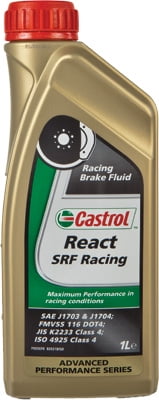

If the level is below the LOW spot, you should investigate for a brake fluid leak. You will also need to replace your vehicle's brake pads at some point and retracting the piston will get the brake fluid level back to FULL. As your brake shoes and pads wear out, the caliper pistons will push out more, which will drive the brake fluid level down. If the level is slightly low, but still in the center of the lines, it’s normal. If you have trouble seeing the mark, try placing a light behind the reservoir. The mark should remain between these two lines.
#Brake fluid full#
The brake fluid in your vehicle is stored in a little plastic reservoir typically in the hood of the vehicle that will have two marks: LOW (L) and FULL (F). You should also change your brake fluid when performing significant repairs such as replacing your master cylinder.Ĭhanging the brake fluid is tricky as each time you pull the master cylinder cap, a small amount of water included in the air will get soaked, decreasing the overall lifespan of the brake fluid. If the brake fluid gets contaminated with water or other harmful substances, you must change it before the vehicle is back on the road. Cars that drive for a lot of miles will demand more frequent fluid changes. Nevertheless, the lifespan of your vehicle's brake fluid depends primarily on how you drive the car. It is important to periodically change brake fluid based on the manufacturer’s suggested intervals. When Should You Replace Your Brake Fluid?Ī brake fluid flush is recommended every two years, but this can vary based on the car and driver. A brake fluid change will also protect the brake lines and other braking system components. This is why brake fluid is essential and must get replaced often. Since a lot of heat gets generated, when water gets mixed with brake fluid, the boiling point drops, making the fluid less efficient and resulting in a spongy brake pedal. Brake fluid is hygroscopic, meaning it draws water molecules from the environment which will occur slowly (unless you have a backflow) and will ultimately lead to a higher proportion of water over time. The brake fluid must remain clean and unpolluted to have the system work effectively. It is important because the braking system is hydraulic so when you press down on the parking brake, you reallocate the brake fluid, pushing it and strengthening the initial load exerted on the foot pedal. The braking system in your car is a closed network so nothing should be allowed to leave or enter the system. As your brake fluid builds moisture in the system, it changes how the brake system reacts to heat, which can alter your braking ability. Not changing your brake fluid could result in reduced brake effectiveness, pedals that you can press to the floor, or the need to pump your brakes to stop. While most mechanics recommend changing the brake fluid every two years, most people don't change it until it's too late. If your brake fluid contains water or another pollutant, you should replace it to stay safe on the road. Understanding the Importance of Brake Fluid Replacement

In general brake fluid ranges in price from $6 to $39 per quart, mechanics charge $150-$210 per hour, and changing the brake fluid in most vehicles will cost you an average of $100. These costs can vary based on whether you want to change the fluid yourself and the type of fluid you have.
#Brake fluid professional#
The costs of changing the brake fluid, or doing a brake fluid flush, should cost between $80 to $130 and should be done by a professional mechanic to ensure safety.


 0 kommentar(er)
0 kommentar(er)
